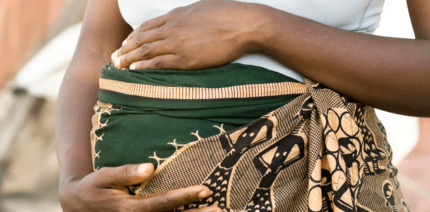
A similar look at public school systems, the labor market and even jury selection processes will all present the same results—Black men and women seem to be under attack by America’s racially biased policies. But the barrage of discriminatory practices doesn’t stop at barring Black people from economic gains or equal education.
It turns out that Black women are being disproportionately cheated out of what should be one of the most obvious natural-born rights that exists: The right to control what happens to your own body.
From government incentives for female convicts to be placed on birth control to researchers carelessly using Black women’s wombs as a test tube for new drugs, the need to declare that Black lives matter extends well beyond matters dealing with law enforcement.
In one of the most troubling examples, a multitude of Black women from low-income backgrounds were targeted for controversial testing of the Depo-Provera shot from the late 1960s to the late 1970s.
Without being warned of the possible side effects of the drug, a disproportionately large amount of Black women from rural areas were used for Depo testing at the Grady Clinic in Atlanta.
They were not asked if they were willing to gamble their lives on the new method of birth control, but that’s exactly what they did.
During the trial, several women developed cancer from the shot or died as a result of the trial.
The shot was approved by the Food and Drug Administration in 1992 despite a host of complaints and concerns cited by major health organizations on the behalf of Black women and other women of color.
Around the same time the harmful testing was unfolding in Atlanta, the Hyde Amendment has also been passed in 1976 and prohibited Medicaid from providing financial assistance with abortion services.
This decision is one of the many ways American policy creates an unfortunate racial gap in teenage pregnancies.
A few years later Thurgood Marshall condemned the amendment in the 1980 Harris v. McRae decision, insisting the amendment was “designed to deprive poor and minority women of the constitutional right to choose abortion,” according to The Guardian.
Despite that historic dissent, the mentality behind the Hyde Amendment still plagues much of American policy today.
The amount of coverage Medicaid is allowed to provide is significantly limited with specific guidelines in place surrounding the circumstances of when the woman was impregnated.
Medicaid coverage is only allowed in situations where the woman was raped or impregnated as the result of an incestuous relationship.
Without that assistance to cover the cost of an abortion, Black women are disproportionately left facing financial barriers to abortions as well as contraceptives.
It ultimately means that their reproductive lives are being determined by their income rather than what many would deem a woman’s natural right to control what happens with her body.
Earlier this month the war raged on Black women’s control over reproduction engaged in a new battle as the House of Representatives’ Oversight and Government Reform Committee passed a resolution to overturn Washington DC’s Reproductive Health Non-Discrimination Act of 2014.
Overturning the decision would allow employers to discriminate against employees based on “their reproductive health decisions, like use of birth control, in vitro fertilization and/or abortion,” The Guardian reported.
While it seems unlikely that such a decision would come to fruition it’s yet another demonstration of the government’s creation of health barriers for women from low-income communities.
“Access to reproductive health care has long been a battle for all women, but for those who are poor or from minority communities, the number of reproductive health barriers is multiplied by state sanctioned discrimination,” The Guardian’s Vaidehi Mujumdar explains.
The government’s tendency to leave Black women barred from birth control and contraceptives has long been documented, but discussions about high barriers to abortion options based solely on income hasn’t been as widely explored.
Perhaps recent reports will finally cause that to change.

